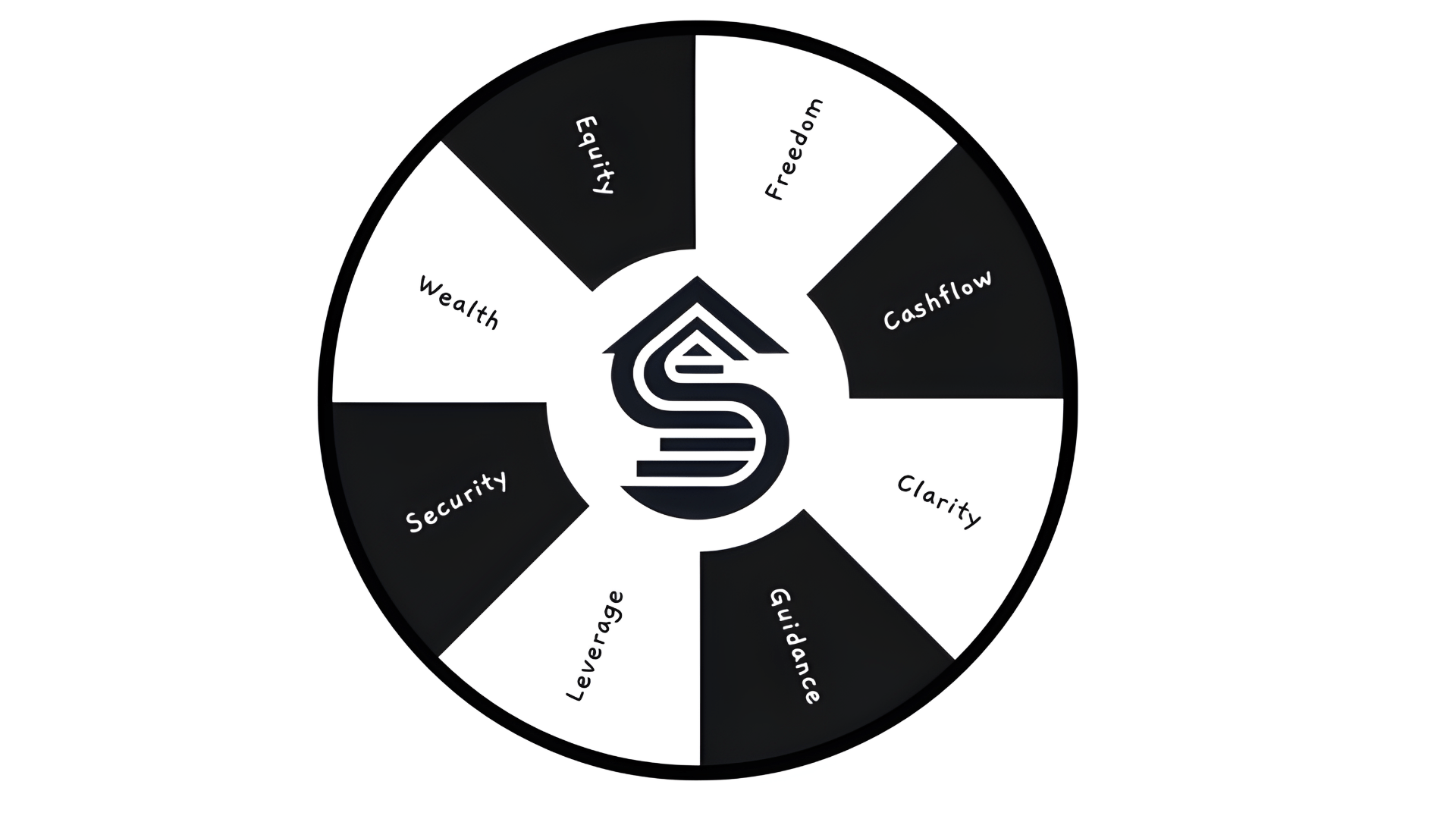Non-Warrantable Condo Loan: Financial Advisor Purchases Miami High-Rise Investment Despite Low Owner-Occupancy

Educational Case Study Disclosure
This case study is hypothetical and for educational purposes only. Scenarios, borrower profiles, loan terms, interest rates, and outcomes are illustrative examples and do not represent current offers or guaranteed terms.
For specific details including down payment requirements, closing cost estimates, interest rate details, closing cost breakdowns, payment calculations, cash-to-close estimates, or an official Loan Estimate, it is highly recommended you schedule a meeting with one of our licensed mortgage advisors.
Learn more:
- Non-warrantable condo loan Reg Z advertising requirements (§1026.24) – CFPB official regulation
- Non-warrantable condo loan Reg Z full text and compliance – Electronic Code of Federal Regulations
- Official non-warrantable condo loan advertising interpretations (§1026.24) – CFPB interpretations
- Non-warrantable condo loan MAP Rule (Reg N) mortgage advertising – Mortgage advertising rules
- NMLS Consumer Access – Verify non-warrantable condo loan lender licensure
Actual loan terms vary by credit profile, property, occupancy, location, market conditions, and lender guidelines. For current options tailored to you, schedule a consultation or apply online.
Ready to explore your options? Schedule a call with a loan advisor.
Discover How a Non-Warrantable Condo Loan Made Urban Investment Property Ownership Possible
Jennifer K., a 42-year-old financial advisor based in Fort Lauderdale, earned a strong six-figure income managing investment portfolios for high-net-worth clients. After years of advising clients on wealth-building strategies, she was ready to practice what she preached: purchasing her first investment property to create passive income streams and build generational wealth for her two children. Her target was a luxurious two-bedroom condo in a prestigious Miami high-rise with stunning ocean views and strong rental demand from corporate executives—the perfect foundation for what she envisioned as a five-property portfolio by age 50.
Despite excellent credit, substantial savings, and strong income documentation, Jennifer discovered a frustrating obstacle: the building’s characteristics made it “non-warrantable,” meaning traditional lenders following Fannie Mae and Freddie Mac guidelines couldn’t finance the purchase. The property checked every box for a profitable investment—prime location, high rental rates, excellent condition—but the building’s investor concentration and ownership structure created an unexpected financing barrier that threatened her entire wealth-building timeline.
“I spent months analyzing this investment,” Jennifer explained. “The numbers worked perfectly, the location was ideal, and I had the financial capacity to close. I just needed financing that recognized this building’s value despite its non-warrantable status.”
Facing similar challenges? Schedule a call to explore your options.
The Challenge: Why Traditional Lenders Rejected a Perfect Investment Property
Jennifer approached her bank first, confident that her strong financial profile and substantial down payment would make approval straightforward. She provided complete financial documentation, had excellent credit, and was prepared to make an appropriate investor down payment. The property appraisal came back at an acceptable value, and everything seemed on track for approval.
Why Was Jennifer’s Condo Purchase Rejected by Conventional Lenders?
Then came the rejection. The bank’s underwriter explained that the building didn’t meet conventional loan guidelines due to low owner-occupancy rates. The high-rise had become increasingly popular with investors and corporate rental tenants, resulting in fewer than the required percentage of units being owner-occupied. Additionally, the building included ground-floor commercial space and a single entity owned multiple units—both characteristics that disqualified it from conventional financing.
What Makes a Condo Building Non-Warrantable?
“I couldn’t believe it,” Jennifer said. “The building was beautiful, well-managed, financially stable, and in one of Miami’s most desirable neighborhoods. But because it didn’t check certain boxes on Fannie Mae’s questionnaire, my bank couldn’t help me. It felt like the guidelines punished successful, well-located buildings.”
How Did Building Characteristics Create Non-Warrantable Condo Loan Barriers?
Jennifer tried two more conventional lenders, hoping for different results. Both conducted their own condo questionnaire reviews, and both reached the same conclusion: the building’s low owner-occupancy ratio, commercial space, and concentrated ownership made it ineligible for conventional financing. One lender suggested she find a different property in a “warrantable” building, but Jennifer had already conducted extensive market research—this specific condo offered the best investment potential in her target area.
Why Couldn’t Jennifer Compromise on the Non-Warrantable Condo Property?
The clock was ticking. The seller had another interested buyer, and Jennifer faced losing not just this property but potentially months of additional searching for a suitable alternative. She had already conducted thorough due diligence: reviewed HOA financials, analyzed rental comps, evaluated property management options, and projected strong cash flow. Walking away meant starting over and potentially missing her goal of owning her first rental property before year-end—the first step in her long-term plan to build a portfolio that would fund her children’s education and her early retirement.
Experiencing similar rejection? Schedule a call to discuss alternative qualification methods.
The Discovery: How Jennifer Found Non-Warrantable Condo Loan Solutions
Frustrated but determined, Jennifer mentioned her financing challenge to a fellow financial advisor in her professional network who had recently purchased an investment condo. Her colleague immediately recognized the problem and recommended researching non-warrantable condo loan programs—specialized financing designed specifically for condominiums that don’t meet conventional lending guidelines.
How Do Non-Warrantable Condo Lenders Differ from Traditional Banks?
Jennifer scheduled a consultation with a loan advisor who specialized in non-warrantable condo financing. During the call, the advisor explained that while Fannie Mae and Freddie Mac impose strict project eligibility requirements, portfolio lenders and non-QM specialists could evaluate condos based on the individual property’s merits and the borrower’s financial strength rather than rigid conforming guidelines.
The advisor outlined how non-warrantable condo lenders assess factors like HOA financial health, building maintenance, property condition, and borrower qualifications rather than simply disqualifying properties based on owner-occupancy ratios or commercial space percentages.
What Documentation Do Non-Warrantable Condo Loan Lenders Require?
“That conversation was eye-opening,” Jennifer explained. “I learned that the building characteristics that disqualified me from conventional loans—high rental demand, mixed-use design, investor appeal—were actually strengths in the eyes of portfolio lenders who understood urban investment real estate. The non-warrantable condo loan wasn’t a compromise; it was the right tool for this type of property.”
The advisor also explained that she wasn’t alone—countless investors successfully purchased condos in high-rises, resort properties, new construction developments, and mixed-use buildings using non-warrantable condo financing. These loans filled a critical gap in the market for quality properties that simply didn’t fit conventional boxes.
The Solution: Non-Warrantable Condo Loan Approval Process
Jennifer worked with her loan advisor to prepare a comprehensive non-warrantable condo loan application. Unlike conventional lenders who automatically rejected the property based on condo questionnaire responses, the portfolio lender evaluated Jennifer’s complete financial profile alongside the property’s individual merits.
What Documentation Did Jennifer Provide for Non-Warrantable Condo Loan Approval?
Documentation provided:
- Complete employment and income verification from her financial advisory firm
- Two years of tax returns showing consistent, strong income
- Bank statements demonstrating substantial liquid reserves
- Excellent credit score with spotless payment history
- Appropriate down payment for investment property
- Significant additional cash reserves exceeding requirements
- HOA financial statements showing strong reserves and low delinquency rates
- Property appraisal from an appraiser experienced with high-rise condos
- Rental market analysis demonstrating strong demand and competitive rates
How Long Does Non-Warrantable Condo Loan Approval Take?
The approval timeline:
- Initial consultation – Discussed property characteristics and borrower qualifications
- Pre-approval process – Verified income, assets, and credit within days
- Property review – Lender evaluated HOA docs and building financials
- Full application – Submitted complete loan package
- Underwriting – Portfolio lender assessed both borrower and property strength
- Conditional approval – Approved pending final property appraisal
- Appraisal completed – Property appraised at purchase price
- Clear to close – Final approval issued
- Closing – Funded and closed in under 35 days
What Made Jennifer’s Non-Warrantable Condo Loan Application Strong?
The non-warrantable condo lender focused on Jennifer’s excellent financial profile—strong income, substantial reserves, excellent credit—combined with the property’s solid fundamentals: well-maintained building, financially healthy HOA, strong rental market, and desirable location. The low owner-occupancy that disqualified conventional financing actually signaled strong investor demand and rental potential to the portfolio lender.
“The approval process felt completely different,” Jennifer said. “Instead of checking boxes on a questionnaire, the underwriter actually evaluated whether this was a smart investment and whether I had the financial capacity to succeed. They understood urban real estate investing in a way conventional lenders didn’t.”
Ready to purchase? Submit a purchase inquiry to discuss your scenario.
The Results: Jennifer Closes on Her First Investment Property
Jennifer closed on her two-bedroom Miami high-rise condo in just over 30 days from initial application. The property exceeded her investment criteria: prime Brickell location, floor-to-ceiling windows with ocean views, resort-style amenities, and immediate rental demand from corporate relocations and international buyers.
What Results Did Jennifer Achieve with Non-Warrantable Condo Loan Financing?
Final loan outcome:
- Approved for competitive non-warrantable condo loan financing
- Favorable interest rate for investment property
- Long-term fixed-rate structure providing payment stability
- Standard down payment for non-owner-occupied condos
- Timeline: Application to closing in 32 days
- Property: 2BR/2BA, 18th floor, Brickell high-rise, Miami, FL
- Rented within three weeks to corporate executive on multi-year lease
- Monthly rental income generates positive cash flow after all expenses
How Did Non-Warrantable Condo Loan Compare to Conventional Financing?
Traditional financing vs. non-warrantable condo loan qualification:
- Conventional lender result: Property automatically disqualified due to building characteristics
- Non-warrantable condo lender result: Property and borrower both approved based on merits
- Investment strategy: ACHIEVED ✓
- Cash flow projection: EXCEEDED ✓
- Long-term wealth building: ON TRACK ✓
What Are Jennifer’s Plans for Future Non-Warrantable Condo Loan Purchases?
“Without non-warrantable condo loan financing, I would have missed this property entirely,” Jennifer explained. “I couldn’t change the building’s characteristics, and I wasn’t willing to settle for a less desirable property just to fit conventional guidelines. The non-warrantable condo loan made it possible to invest in the exact property my research identified as the best opportunity.”
Jennifer views this Miami condo as property #1 in her five-property investment plan. The strong rental demand and positive cash flow validated her market research, and she’s already analyzing similar high-rise condos in Fort Lauderdale and West Palm Beach for potential property #2. When she’s ready for her next purchase, she plans to leverage the equity from this first property using a HELOC or Home Equity Loan—allowing her to access capital for the next down payment without refinancing and losing her current favorable rate on the Miami property.
“I’m not just collecting rental properties,” Jennifer said. “I’m building a portfolio of cash-flowing assets that will provide financial security for my family, fund my children’s college education, and give me the freedom to retire on my terms. This first condo is the foundation of that wealth-building strategy, and non-warrantable condo financing made it possible.”
Ready to get started? Get approved or schedule a call to discuss your situation.
Exploring Other Non-Warrantable Condo Loan Options?
While Jennifer used a non-warrantable condo loan to purchase her first investment property, this financing works for multiple scenarios:
- Already own a non-warrantable condo? See how an attorney achieved rate savings with non-warrantable condo loan refinance
- Need to access equity? See how a marketing consultant used non-warrantable condo loan cash-out refinance to fund a second property
- View all case studies to find success stories matching your situation
Key Takeaways for Real Estate Investors Buying Non-Warrantable Condos
- Non-warrantable condo loans evaluate properties on individual merits rather than automatically disqualifying based on Fannie Mae/Freddie Mac guidelines—allowing financing for quality condos in high-rises, mixed-use buildings, resort communities, and properties with high investor concentration (HUD condo project approval guidelines)
- Common non-warrantable characteristics include: low owner-occupancy rates, ground-floor commercial space, single-entity ownership concentration, new construction with unsold units, resort/hotel features, or litigation pending against HOA
- Strong borrower qualifications strengthen approval odds—Jennifer’s excellent credit, substantial reserves, and solid income helped offset property characteristics that concerned conventional lenders
- HOA financial health matters significantly—portfolio lenders review association reserves, delinquency rates, insurance coverage, and maintenance budgets to assess building stability (Fannie Mae condo project standards for comparison)
- Think beyond the single transaction—successful investors view each property as one step in a larger wealth-building strategy, planning how to leverage equity from property #1 to acquire property #2 through HELOCs or home equity loans while preserving low rates on existing financing
Have questions about qualifying for non-warrantable condo financing? Schedule a call with a loan advisor today.
Alternative Loan Programs for Condo and Investment Property Buyers
If a non-warrantable condo loan isn’t the perfect fit, consider these alternatives:
- DSCR Loan – Finance investment properties based on rental income, no personal income verification
- Portfolio Loan – Flexible guidelines for unique properties and scenarios
- Bank Statement Loan – Qualify using bank deposits rather than tax returns
- Asset-Based Loan – Use investment portfolios for qualification
- 1099 Loan – Alternative documentation for self-employed borrowers
Explore all loan programs to find your best option.
Helpful Non-Warrantable Condo Loan Resources
Learn more about this loan program:
- Complete Non-Warrantable Condo Loan Guide – Detailed requirements, rates, and qualification guidelines
- Non-Warrantable Condo Loan Calculator – Estimate your qualification and payments
Similar success stories:
- How an attorney achieved rate savings with non-warrantable condo loan refinance – Refinance success story
- Marketing consultant accesses equity with non-warrantable condo loan cash-out refinance – Using equity for portfolio expansion
- View all case studies – Browse by your journey stage
External authoritative resources:
- HUD condo project approval standards – Federal condo financing guidelines
- Fannie Mae condo project eligibility – Conventional lending standards for comparison
Ready to get started?
- Apply online – Start your application today
- Schedule a consultation – Discuss your specific situation
- Take the discovery quiz – Clarify your goals
Need local expertise? Get introduced to trusted partners including loan officers, realtors, and property managers in your area.
Need a Pre-Approval Letter—Fast?
Buying a home soon? Complete our short form and we’ll connect you with the best loan options for your target property and financial situation—fast.
- Only 2 minutes to complete
- Quick turnaround on pre-approval
- No credit score impact
Got a Few Questions First?
Not Sure About Your Next Step?
Skip the guesswork. Take our quick Discovery Quiz to uncover your top financial priorities, so we can guide you toward the wealth-building strategies that fit your life.
- Takes just 5 minutes
- Tailored results based on your answers
- No credit check required
Related Posts
Subscribe to our newsletter
Get the latest insights and mortgage case studies in your inbox.






